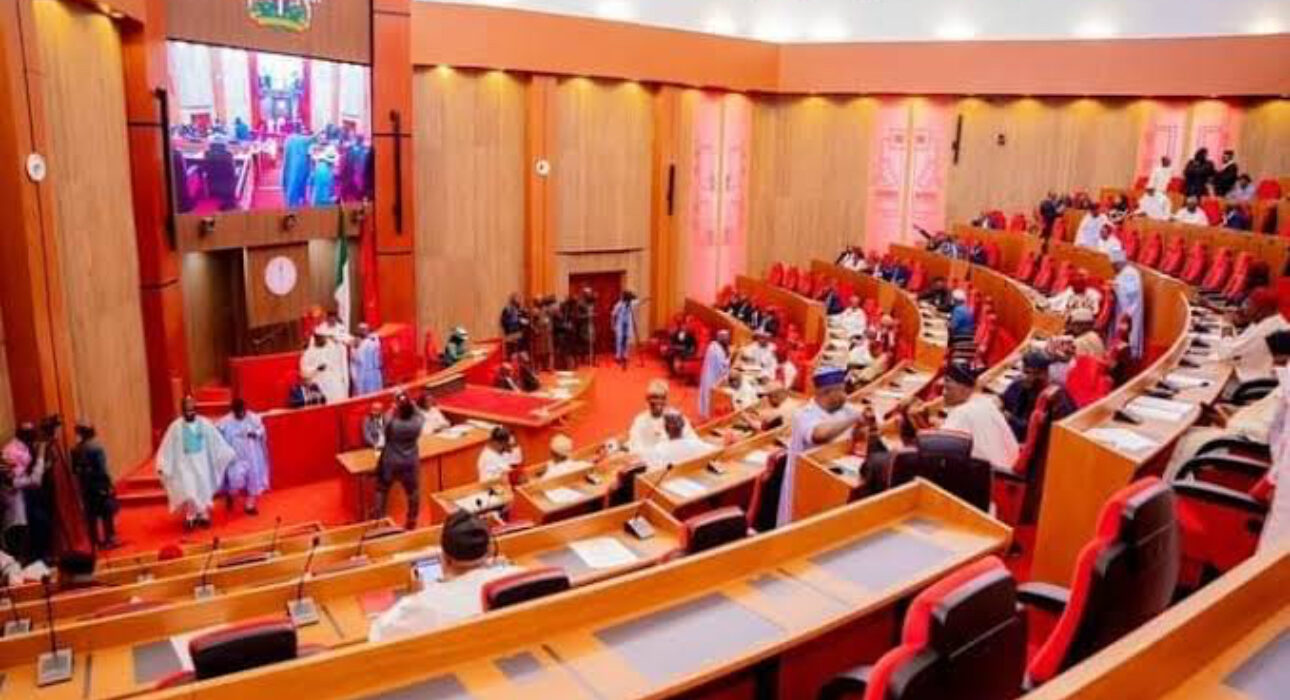Senate Adopts Harmonized Report on Tax Reform Bills, Paving Way for Overhaul of Nigeria’s Fiscal System

The Nigerian Senate has officially passed the harmonized report on four landmark tax reform bills, bringing the country one step closer to a comprehensive overhaul of its tax administration system.
The harmonized legislation, which was previously approved by both chambers of the National Assembly, now awaits President Bola Ahmed Tinubu’s assent to become law.
This development marks a significant milestone in the implementation of the Federal Government’s Fiscal Policy and Tax Reforms initiative, designed to boost revenue generation, improve compliance, and streamline the country’s tax system.
The four bills included in the harmonized report are:
1. Joint Tax Board (Establishment) Bill, 2025 (SB. 583)
2. Nigeria Revenue Service (Establishment) Bill, 2025 (SB. 584)
3. Nigeria Tax Administration (Establishment) Bill, 2025 (SB. 585)
4. Nigeria Tax (Consolidation) Bill, 2025 (SB. 586)
These bills aim to modernize Nigeria’s tax framework by consolidating tax functions, strengthening institutional efficiency, and expanding the tax net.
The new structure is also intended to enhance transparency and foster a more business-friendly environment.
Senator Mohammed Sani Musa, Chairman of the Senate Committee on Finance, presented the harmonized report during Wednesday’s plenary.
He explained that the harmonization committee, consisting of members from both the Senate and the House of Representatives, resolved discrepancies in the versions of the bills passed by each chamber.
Key highlights of the harmonized report include:
• Nigeria Tax Administration Bill: Incorporates Clause 9 from the House version, mandating the disclosure of specific financial records by banks to tax authorities, and Clause 45 from the Senate version, which holds company managers personally liable for tax-related offenses.
• Nigeria Revenue Service Bill: Adopts Clause 4 from the House version, which outlines the agency’s core functions, and Clause 7 from the Senate version, specifying the composition and powers of the governing board.
• Joint Tax Board Bill: Blends Clause 4 from the House version, defining board membership, with Clauses 5 and 10 from the Senate version, which describe the operational functions and appointment procedures for the Executive Secretary.
Senate President Godswill Akpabio presided over the plenary and conducted a voice vote, which saw the harmonized report passed without opposition.
The passage of these bills represents a coordinated effort between the legislative and executive arms of government.
The reforms were first presented to the National Assembly in November 2024, following recommendations from the Presidential Committee on Fiscal Policy and Tax Reforms, chaired by Taiwo Oyedele.
The committee has emphasized that Nigeria’s tax-to-GDP ratio — one of the lowest globally — must be significantly improved to meet development goals and reduce dependence on oil revenues.
With the harmonized bills now passed by both chambers, they will be forwarded to President Tinubu for assent.
Once signed into law, the new tax regime is expected to:
• Enhance coordination among federal and state tax authorities
• Improve revenue collection mechanisms
• Simplify tax laws and reduce administrative burdens
• Increase public confidence in the taxation system
Analysts believe the reforms could be a game-changer for Nigeria’s fiscal sustainability. If implemented effectively, they could increase government revenues, reduce leakages, and support critical investments in infrastructure, education, and healthcare.
The business community has also welcomed the reforms, citing the potential for a more predictable and transparent tax environment.









